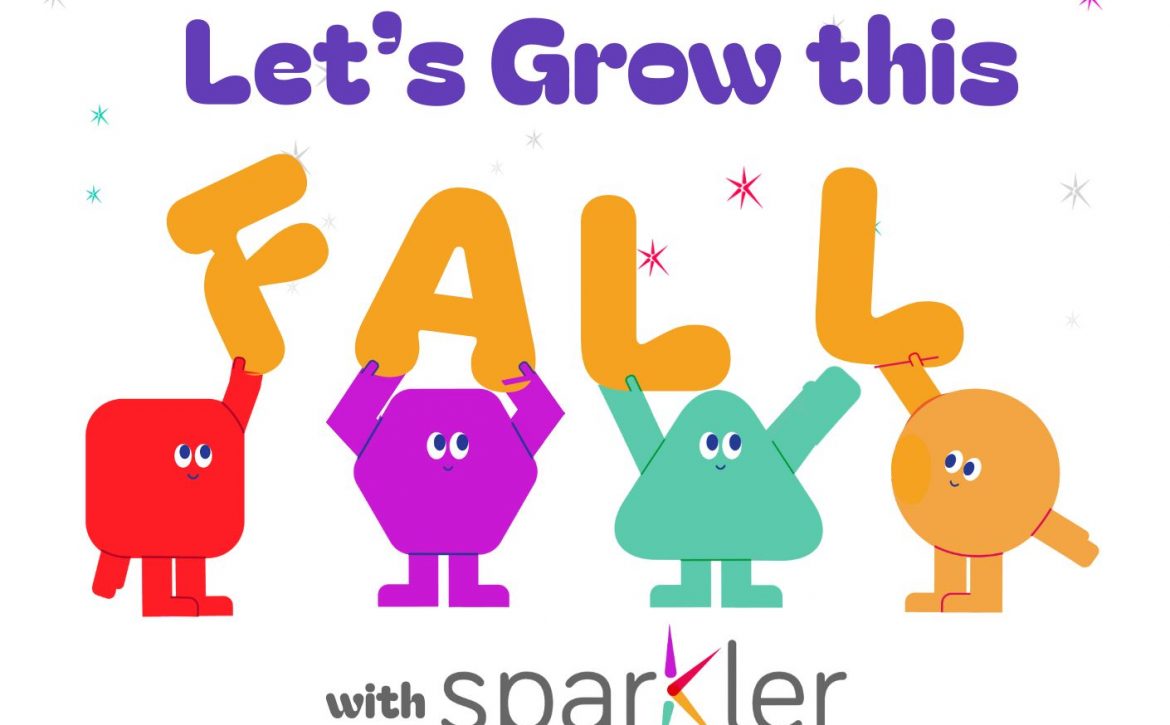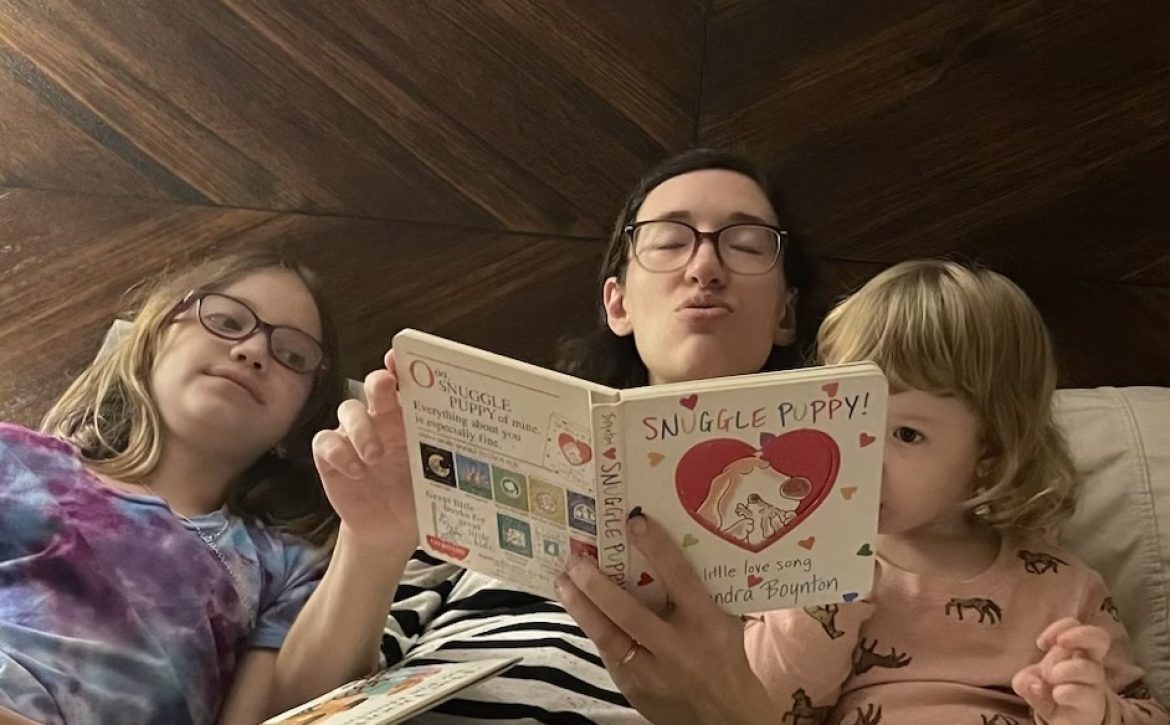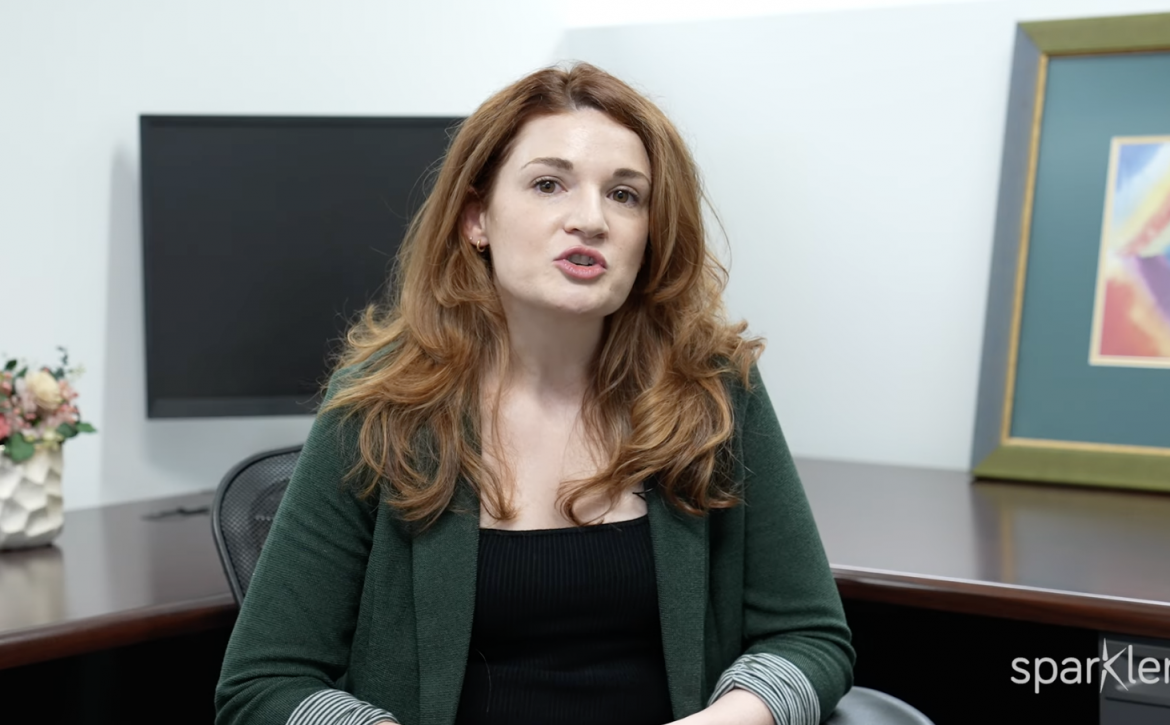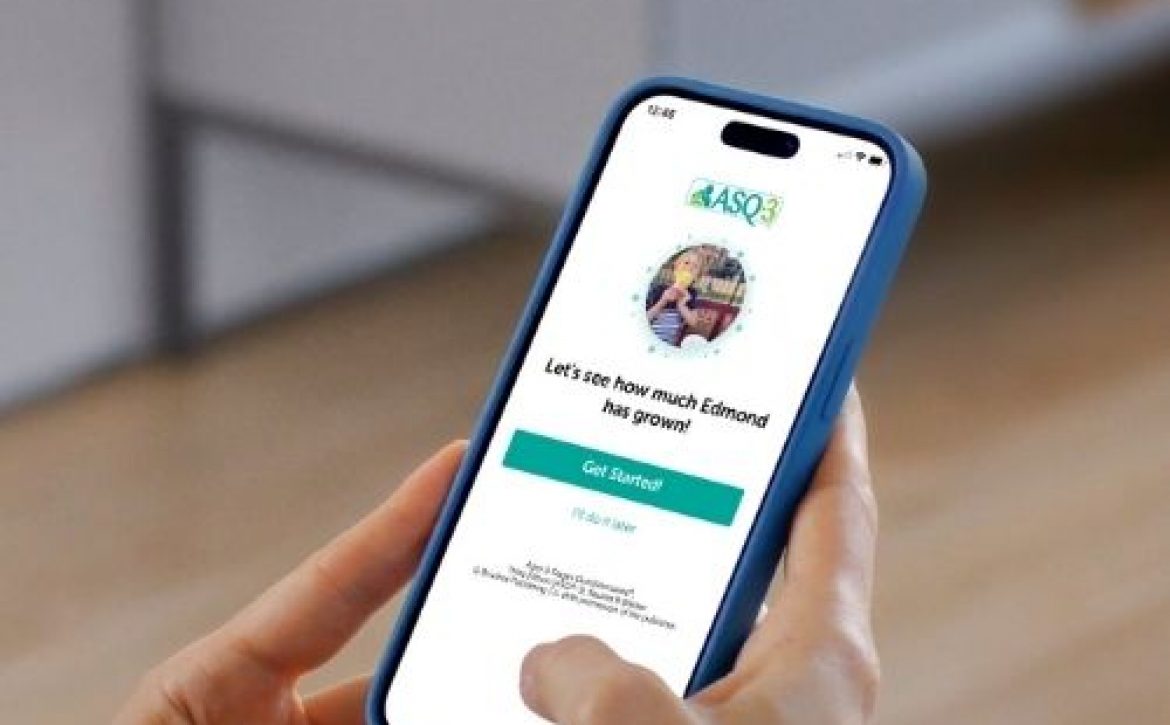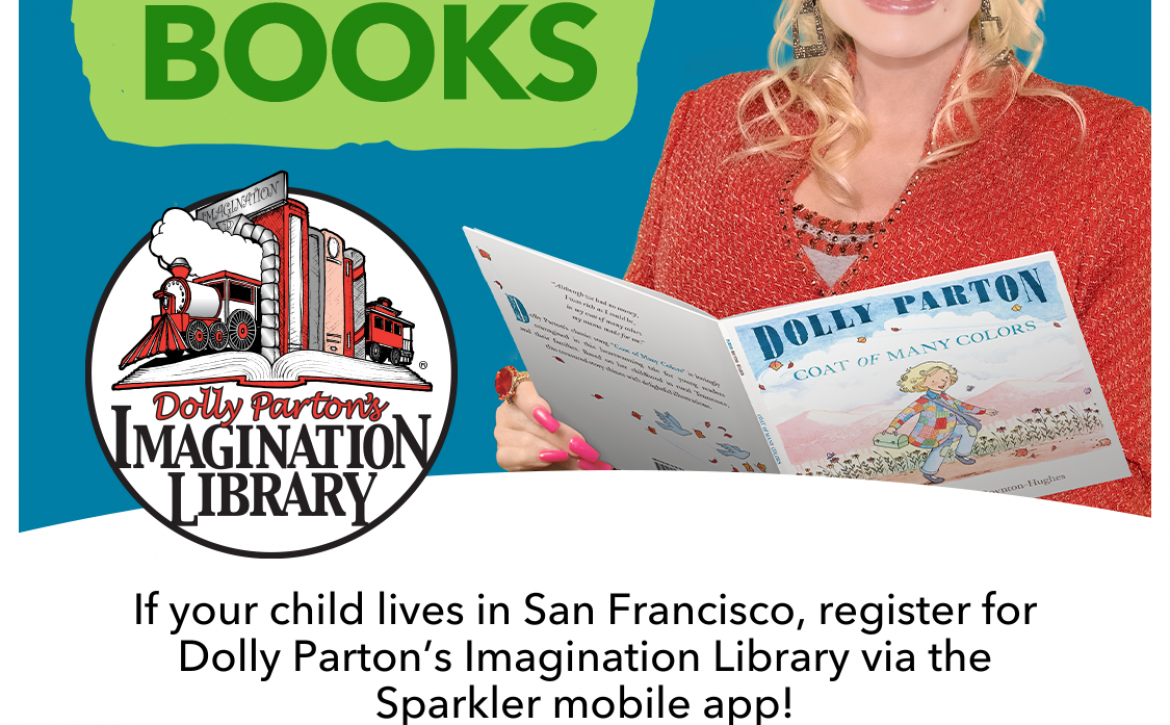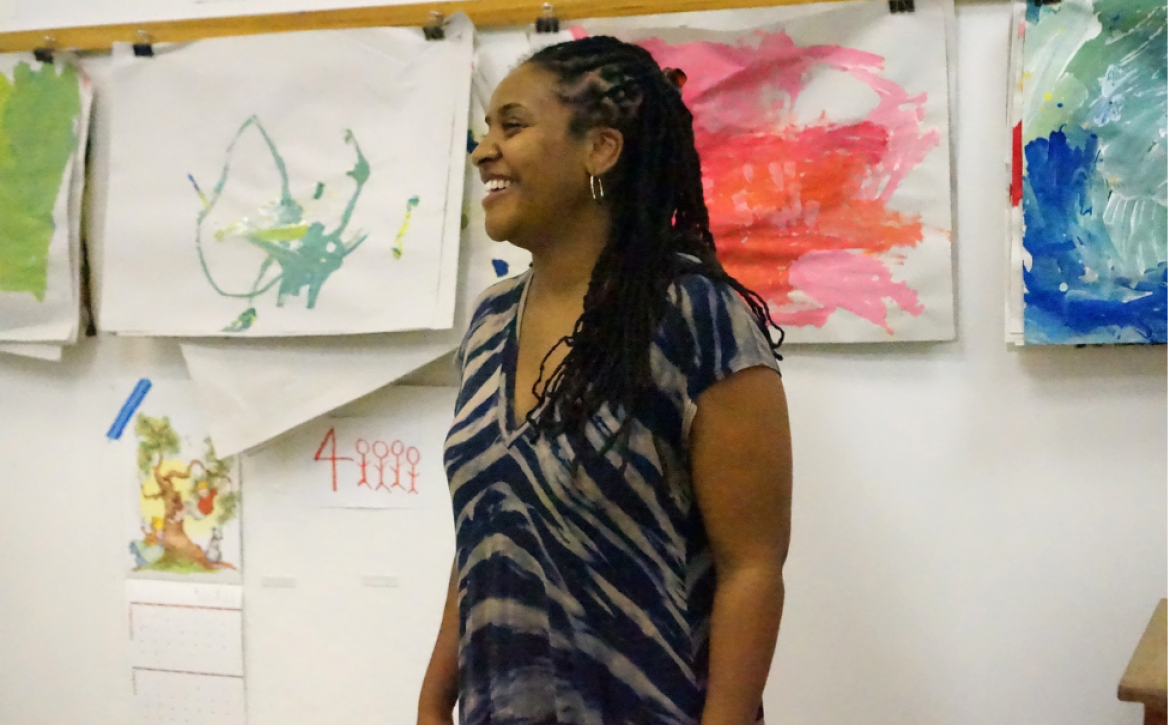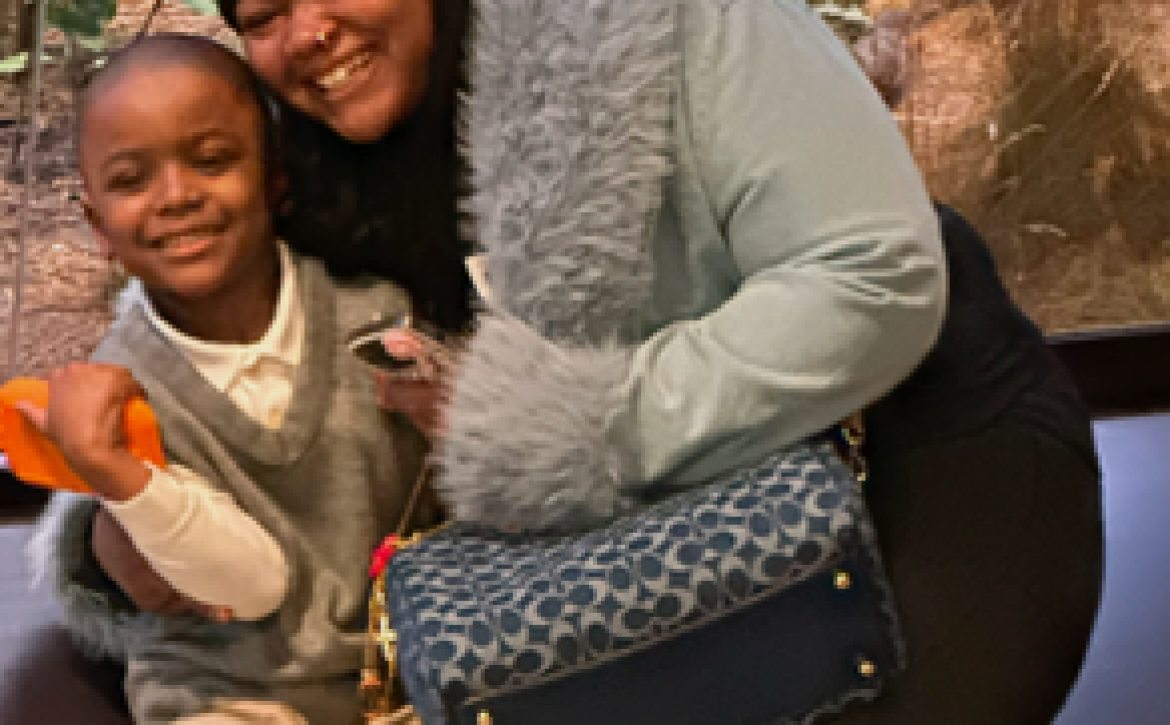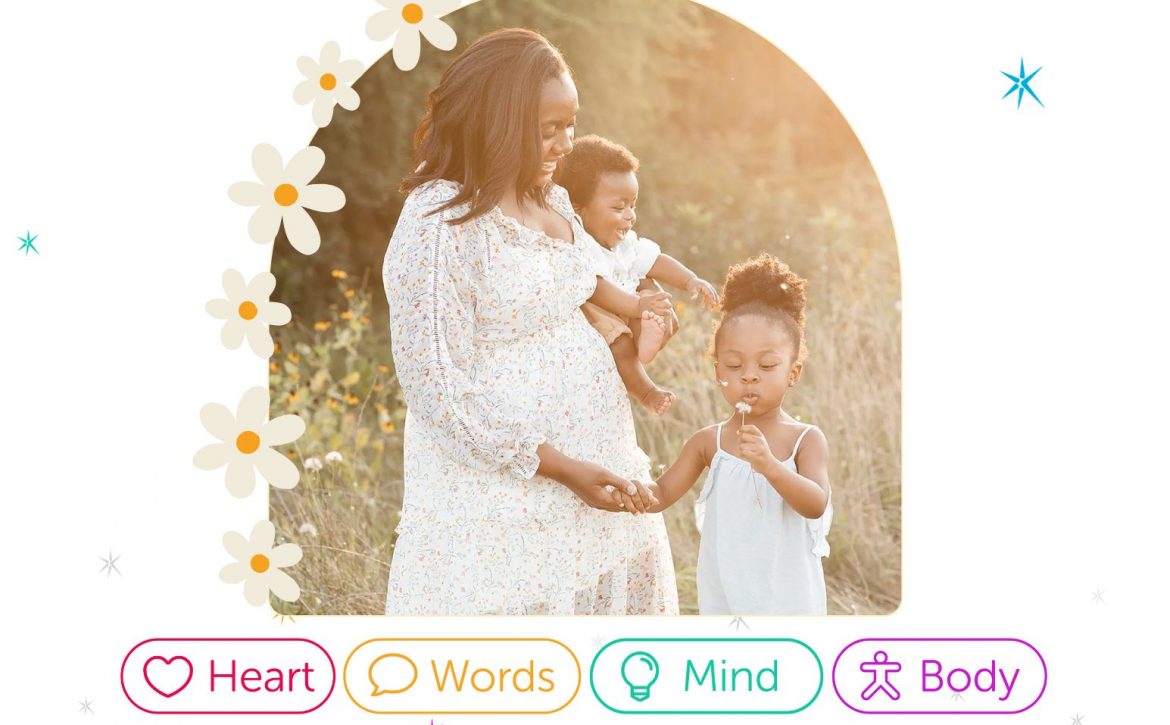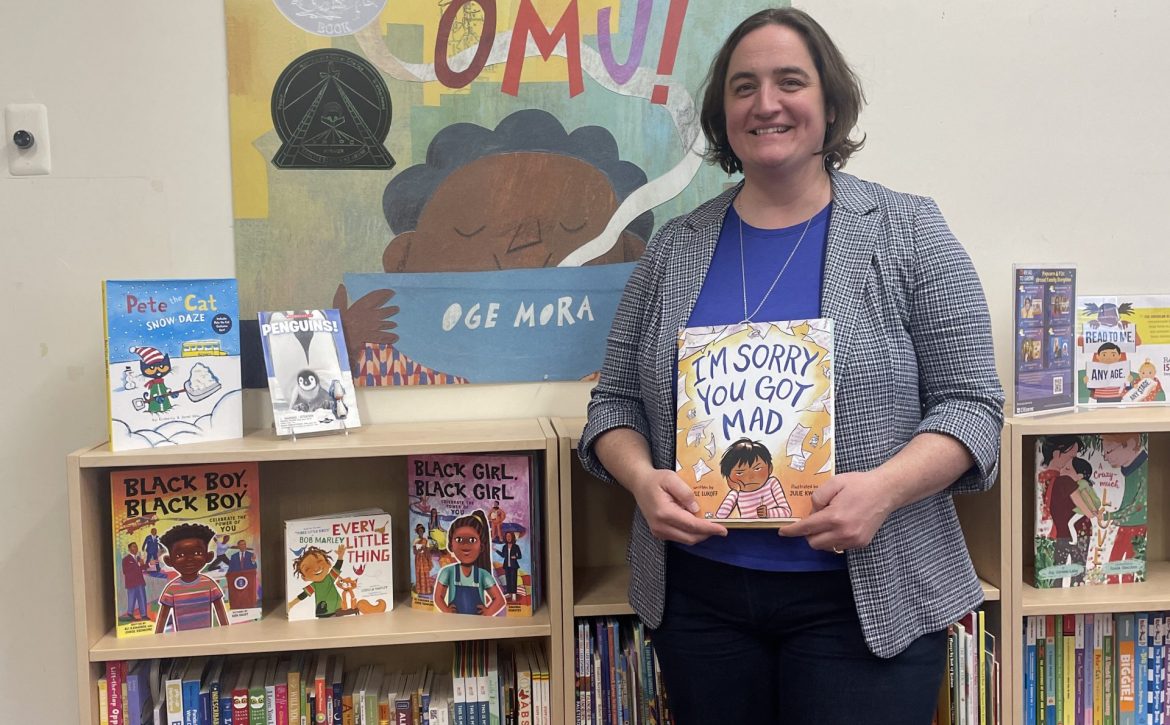Let’s Grow this Fall with Sparkler
Fall is full of opportunities to grow children’s hearts, words, minds, and bodies. Sparkler offers dozens of way’s to learn through play with young children this season. Here’s a new activity booklet that families can use to prompt play-based learning this season. We explore pumpkins, apples, pinecones, and more! Find even more in your Sparkler app.

Sparkler chatted with Jordan Dospil, who is a Senior Content Specialist at the National Center for Families Learning (NCFL), where she creates curricula for the early childhood space. She has a background as an early childhood educator. Sparkler worked together with Jordan and the team at NCFL to create Play With Purpose, a playgroup program for families with young children.
I think of play very broadly. For me, play is led by the child, keeps their interest, and it’s FUN.
Yes! Toys can be great, but I think they are completely optional for play. As far as that goes, I think play could even be something that never leaves our heads — that is completely imaginary. My older kids are big daydreamers and that can be a wonderful way to play.
For so many reasons, but the top ones for me are learning and imagining. Imagining is the key to creative problem-solving that we as humans will always need. Aside from that, though, I think it’s essential for us to give kids the time and space to be kids and play is a huge part of that.
My favorite ways to read with young children are to use voices and sound effects and to get them moving during the book. So for sound effects, if a dog is talking in the book I’ll try to make it sound like a dog — barking and howling. If I have wiggly kids, I’ll get them to act out the book — like huffing and puffing to help the wolf blow the house down in “The Three Little Pigs.”
Kitchen supplies are huge — my toddler loves to whisk anything, or use table knives to cut up cheese and things like that. But I think the kind of play we do most involves just ourselves. We play hand games like patty cake or Itsy Bitsy Spider. We pretend that we’re puppies or kittens, or we trade places and she’s the mommy telling me what to do. Last night we were making shadow puppets with our hands.
To me it’s about activating the power of play. You know, kids are learning from us whether we mean them to or not — and they learn through play. I think of the times I’ve seen my kids pretend to go to work like they see me do, or repeat things I say. I’m not trying to teach them those things! But parents really are their child’s first and best teacher. When we can use play meaningfully to teach kids and strengthen our connections with them, that is so powerful.
I think they learn some new ways to talk to families about the value of play and teaching them new tools to engage their children. For a lot of facilitators, it’s also a new way to connect to families in their community, which helps families access resources and support they need even beyond the playgroup.
I was one of those parents! I still sometimes struggle with imaginative play as an adult. My tips:
Interested in learning more about the Play With Purpose program in San Francisco?
Sparkler chatted with Kirsten Carlone, the lead care coordinator at 211 Child Development, who is featured in the new video (above) about the importance of developmental screening and following up with families who complete ASQs. Kirsten’s primary role at 211 Child Development is following up with families who use Sparkler. She also provides outreach and training for families and programs across Connecticut.
Screening is important because potential delays are not always obvious to parents, teachers, or other providers working with families. Screening helps us identify the areas that could use more support, as well as celebrate the areas that are on track.
I support families by helping them understand the screening questions and results. I provide information on developmental milestones and can connect families to free programs in Connecticut, like Birth to Three, Preschool Special Education, and Help Me Grow.
After a family completes a screening, I review the results and the caregiver’s responses. If the responses indicate a score of monitor or refer, or the caregiver wrote in a specific concern, I reach out to the family by phone to discuss it.
If, while speaking with the family, concerns are identified, I will support the family in connecting to programs like Birth to Three, Preschool Special Education, or Help Me Grow. I will also share play activities and parenting tips through the Sparkler app so the family can play together while working on the areas of concern.
The follow-up form is important because it helps providers keep track of follow-ups that are due. It gives providers a place to record their recommendations and other matters discussed during follow-up. Filling out the follow-up form also allows Sparkler to track data. Having this data helps us see what recommendations are being made and how families are being supported by their program across the state.
The follow-up form is similar to the ASQ checklist, but it holds a lot more information. The follow-up form allows providers to record more qualitative data and information on the recommendations given to the family. Providers can look back on past recommendations and can make edits if new recommendations are made.
The “rescreening” question on Sparkler’s follow-up form is useful if the child has scored at “monitor” and we want to check in soon on how the child is progressing after we’ve allowed some time (about 6-8 weeks) to let the family practice skills together. When you pick a date in the future, Sparkler knows to prompt the family — when that date arrives — to redo the screening or complete a new ASQ if the child has aged up into the next interval. This can be helpful in tracking a child’s progress, especially when the child is in an age range where the screening intervals are more spread out.
Play activities in the Sparkler app all correspond with the areas of development in the ASQ. Families can use their results to find activities by looking at the area of concern. For example, if the score is “monitor” in communication, the family can search for activities labeled “Words” in the app. Families can complete activities and collect “Sparkles” in that area of development to practice skills and prepare for the next screening.
The follow-up form helps track a child’s progress because each form is saved within the dashboard. Providers are able to look back on past screenings and the recommendations that were made. This can be especially helpful when reviewing a new screening and providing new recommendations.
Our Care Coordinators are happy to speak with providers to offer guidance and information on the resources available in Connecticut. We often get phone calls and inquiries from providers looking for advice and resources to share with the families they are working with. We also offer training for providers (virtual and in person) and can attend community outreach events. (You can call 1-800-505-7000 to reach a 211 CD Care Coordinator.)
There’s information for families on the Sparkler app and a web page with a lot of useful information that we’ve worked with the team at Sparkler to create. Anyone can call our direct line at 1-800-505-7000 to speak with a Care Coordinator. Our website is also a great resource for providers to learn about available programs and they can request brochures and other materials (for free!). Depending on staff availability, we can provide training on these resources and attend community outreach events.
Children don’t come with manuals! We all have questions about our children’s development: When will she learn to roll over? When will he learn to talk? What can we do to help her get ready to read? How can I help them make friends?
Is your organization ready to kick off your developmental screening program this fall? These resources can help you brush up on how to use Sparkler to screen and follow up the families you serve.
Sparkler offers the mobile Ages & Stages Questionnaires® (ASQ®) — which help families learn about their children’s development during early childhood. The ASQs (which are published by Paul H. Brookes Publishing Co.) draw on parents’ expert knowledge about their children’s learning and development to help families, educators, home visitors, pediatricians, and others to learn about and support children’s development.
The American Academy of Pediatrics (AAP) recommends universal screening for young children. Why?
The first step in the process is inviting families to use Sparkler to complete the ASQ using Sparkler.
Sending Families ASQs: When a family signs up for Sparkler, Sparkler assigns the current ASQs, based on the birthday and prematurity the family shares when signing up. As the child gets older, Sparkler assigns new ASQs and sends families in-app notifications letting them know they’re available. This means programs do not need to identify the correct interval and/or send the ASQ to families.
Inviting Families to Screen: Many programs find that it’s useful to explain screening to families so they understand what it is and why it’s important and to set expectations so that families know when they are expected to fill it out. Some programs want all families to fill out the ASQ at the start of the school year. Others want families to fill out the ASQs at particular moments in their children’s lives (e.g., at 9 months old). Many different approaches work; our only suggestion is to be clear with families so they understand what to do and when to do it.
Once a family completes an ASQ, it’s time for the program to review the results, explain the results to the family, and help the family understand any recommended next steps. Sparkler has created a guide to help programs learn how to follow up after screening. It details the following steps:

San Francisco families with children 0-5 years old can now get free books for their home libraries from Dolly Parton’s Imagination Library — a program that helps families with young children access age-appropriate, high-quality book each month through early childhood.
San Francisco families can find the sign up form on the Sparkler mobile app. Families who open the app will see a new green tile on the home screen with the Imagination Library logo on it; when they tap it, they’ll open the registration form. Fill it out to start receiving free books in the mail each month.
Families can receive books in English or bilingual English-Spanish. Titles range from classics like “The Rabbit Listened” to new books like “Buffalo Fluffalo.” The books change each year.
Sparkler Learning is the local nonprofit partner working with the SF Department of Early Childhood and the SF Public Library to bring Dolly Parton’s Imagination Library to all San Francisco families with young children.
Since launching in 1995, Dolly Parton’s Imagination Library has become the preeminent early childhood book gifting program in the world. The flagship program of The Dollywood Foundation, a 501(c)(3) non-profit organization, has gifted over 200 million free books in the United States, Canada, United Kingdom, Australia, and Ireland. This is achieved through funding shared by The Dollywood Foundation and Local Program Partners.
The Imagination Library mails more than 2 million high-quality, age-appropriate books each month to enrolled children from birth to age five. The program has been widely researched and results demonstrate the positive impact on early childhood development and literacy skills. Penguin Random House is the exclusive publisher for Dolly Parton’s Imagination Library. For more information, please visit imaginationlibrary.com
Las familias de San Francisco con niños de 0 a 5 años ahora pueden obtener libros gratis para sus bibliotecas domésticas de la Biblioteca de la Imaginación de Dolly Parton, un programa que ayuda a las familias con niños pequeños a acceder mensualmente a libros de alta calidad y apropiados para su edad durante la primera infancia.
Las familias de San Francisco pueden encontrar el formulario de registro en la aplicación móvil Sparkler. Al abrir la aplicación, verán un nuevo recuadro verde en la pantalla de inicio con el logotipo de la Biblioteca de la Imaginación; al tocarlo, se abrirá el formulario de registro. Complételo para empezar a recibir libros gratis por correo cada mes. Las familias pueden recibir libros en inglés o bilingües inglés-español. Los títulos van desde clásicos como “El Conejo Escuchó” hasta libros nuevos como “Buffalo Fluffalo”.
Los libros cambian cada año. Sparkler Learning es la organización local sin fines de lucro que colabora con el Departamento de Primera Infancia de San Francisco y la Biblioteca Pública de San Francisco para llevar la Biblioteca de la Imaginación de Dolly Parton a todas las familias de San Francisco con niños pequeños.
Desde su lanzamiento en 1995, la Biblioteca de la Imaginación de Dolly Parton se ha convertido en el programa de donación de libros para la primera infancia más importante del mundo. El programa insignia de la Fundación Dollywood, una organización sin fines de lucro 501(c)(3), ha donado más de 200 millones de libros gratuitos en Estados Unidos, Canadá, Reino Unido, Australia e Irlanda. Esto se logra gracias a la financiación compartida entre la Fundación Dollywood y los socios locales del programa. La Biblioteca de la Imaginación envía mensualmente más de 2 millones de libros de alta calidad y apropiados para cada edad a niños inscritos, desde el nacimiento hasta los cinco años. El programa ha sido ampliamente investigado y los resultados demuestran su impacto positivo en el desarrollo y la lectoescritura de la primera infancia. Penguin Random House es la editorial exclusiva de la Biblioteca de la Imaginación de Dolly Parton. Para más información, visite imaginationlibrary.com.
旧金山有 0-5 岁儿童的家庭现在可以从多莉·帕顿的想象图书馆免费获得书籍,该计划旨在帮助有幼儿的家庭在幼儿时期每月获得适合其年龄的高质量书籍。
旧金山的家庭可以在 Sparkler 手机应用程序上找到注册表单。打开应用程序的家庭会在主屏幕上看到一个新的绿色磁贴,上面印有 Imagination Library 的标志;点击后,即可打开注册表单。填写后,即可开始每月通过邮件收到免费书籍。
家庭可以收到英文版或英西双语版书籍。书名范围广泛,从《兔子听了》(The Rabbit Listened)等经典作品到《水牛毛毛》(Buffalo Fluffalo)等新书。书籍种类每年都会更新。
书籍每年都会更新。Sparkler Learning 是一家本地非营利组织,与旧金山幼儿教育部和旧金山公共图书馆合作,将多莉·帕顿的“想象图书馆”带给所有旧金山有幼儿的家庭。
自1995年启动以来,多莉·帕顿的“想象图书馆”已成为全球首屈一指的幼儿图书捐赠项目。该项目是多莉坞基金会(一家501(c)(3)非营利组织)的旗舰项目,已在美国、加拿大、英国、澳大利亚和爱尔兰捐赠了超过2亿本免费图书。该项目的资金由多莉坞基金会和当地项目合作伙伴共同承担。“想象图书馆”每月向0至5岁的注册儿童邮寄超过200万本高质量、适龄的图书。该项目经过广泛研究,结果证明了其对儿童早期发展和读写能力的积极影响。企鹅兰登书屋是“多莉·帕顿的想象图书馆”的独家出版商。欲了解更多信息,请访问imaginationlibrary.com
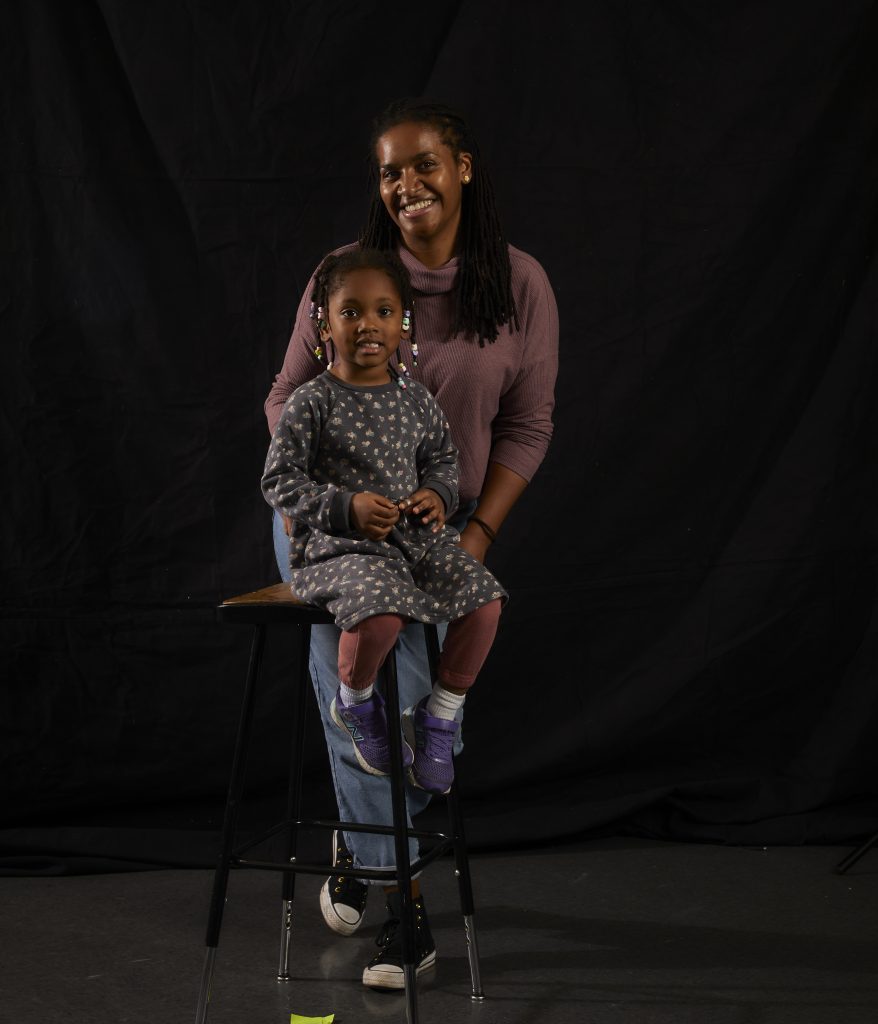
Sparkler’s education director, Dana Stewart, spent a long time as a preschool teacher and school leader. She’s also the mom of two amazing young children.
At Sparkler, Dana creates and maintains the amazing play content and parenting information in the app. She also oversees Camp Sparkler — our summer learning program, which is available for free through the app to all families which children 0-5 years old.
In this Q&A, Dana shares information about summer learning and Camp Sparkler, and what parents/caregivers can do to promote summer learning with young children.
Sparkler: In your experience, is “summer learning loss” real for preschoolers and young children?
Dana: Yes! I remember as a preschool teacher, we spend the whole year building up routines. By the spring, children are so practiced that they know exactly what to do in the classroom. If they go away for two weeks, it’s like they never learned the routines. When we think about summer learning loss, we tend to think about older children and academic learning, but the same principles hold true for toddlers and preschoolers. They’re just learning different things in school.
Sparkler: As a mom and longtime preschool teacher and leader, can babies, toddlers, and preschoolers actually keep learning in the summer months?
Dana: Yes! Learning never stops with young children. I think that’s why it’s especially important for us — as caregivers of young children — to create opportunities for them to practice the skills that we want to promote throughout the year.
Sparkler: Why is the summer actually an important time for learning?
Dana: I think summer offers new opportunities for learning because a lot of us tend to slow down. The hustle bustle of the school year slows; children are less busy. This gives families opportunities to really dig into their children’s interests. We’re also outside more in the summer months, which gives children a chance to explore the natural world freely in a way that is more complicated when it’s colder outside. Summer can be an especially great time to involve children in activities that focus on skills like helping others, being a good friend, or calming down when they’re upset.
Sparkler: Why have you built the Camp Sparkler program around Sparkler’s Little Kids, Big Hearts podcast this summer?
Dana: The podcast is amazing and I’m delighted to be able to shine a light on it with camp this year. Todd Loyd, the podcast host, is a preschool teacher, and he’s so great with the kids featured in each episode. To be able to hear the children’s ideas and experiences — in their own words — makes the podcast engaging for kids. My child and I both enjoy listening — and it helps me, as a mom, to hear how my own child thinks about these big ideas related to our “hearts,” or social and emotional learning.
Sparkler: Sparkler emphasizes play — why is play important in the Camp Sparkler program?
Dana: Play is how children learn best. I think play is how everybody learns best. The physical experience of play is the best teacher. It’s the joyful self-directed practicing of skills that helps to crystalize new information. It generates new ideas and is the birthplace of creativity and ingenuity. The fact that play is FUN is maybe the most important aspect of play. We are motivated to play because it doesn’t feel like a chore. Playing WITH people you love is even better.
Sparkler: People are busy — how much time does a busy parent or caregiver have to spend playing with a child in order to make a difference?
Dana: The good news is that it doesn’t take much time at all. Even five or ten minutes a day can make a huge difference. The best is when you can spend a few minutes playing with your child and then set them up to continue playing, thinking, and processing independently for a few minutes.
Sparkler: What are some of the highlights of Camp Sparkler this year?
Dana: There are SO MANY new play activities, but I am especially excited about all of the music that we’re featuring this year. Benjamin Weiner and Bill English who wrote and performed the songs (along with featured podcast actors) are so great. My own kid loves the songs, and I’m sure others will, too!
Sparkler: This will be your fourth summer leading Sparkler’s summer learning program. What brings you joy about Camp?
Dana: My favorite thing about camp is creating new play activities I’m really excited about and sharing those with families — and seeing their excitement as they play them together.
Sparkler: How can families access Camp Sparkler?
Dana: If a family already has a Sparkler account, they’ll see Camp Sparkler activities on their app home screen on July 7, 2025 through the end of August. If a family doesn’t have a Sparkler account, they should create one, linking up with their local school or program and then they’re all set. (There’s more information here.) Families can start anytime over the summer. It’s okay if they miss the first day or week. If anybody has questions, just reach out to support@playsparkler.org.
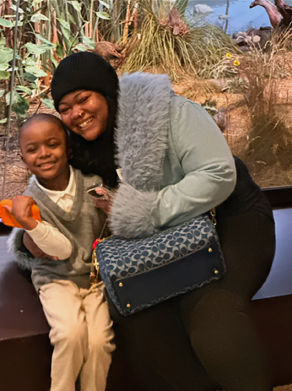
Sparkler chatted with Shenell Samuels — a mom of a five-year-old with autism who is also a teacher in a school readiness program in Hartford who serves students with autism and other diagnoses — to share her experience and insights related to autism.
My son is five years old. He was diagnosed when he was two and a half … We went through the Birth to Three process. They asked me if I wanted to do an evaluation because he wasn’t meeting his developmental milestones. So we did a whole evaluation. It took a few hours inside our home and they did diagnose him with autism.
I was a bit confident because I knew I would know how to help him to get resources. And I was also a bit worried because it’s like: would he be able to talk, communicate, work with peers?
My experience with Birth to Three was wonderful from start to finish … We set realistic goals for him to work on and she did help us a great amount coming to our home, working with him to get him where he needs to be … Early intervention played a huge part with him being open to the world.
My biggest goal would be to have a conversation with him, for him to be talking to me more. One day, I’d like for him to be able to join a sports team. And of course, I want him to graduate from high school and college, and of course regulating his emotions. He does have big emotions … Every day we’re working toward those bigger goals. We’re working on the small goals first to have him reach those. We have small goals we can reach while also keeping the big goals in mind.
Autism isn’t an illness. The biggest misconception is that he’s a sickly kid. He’s not sickly. There are some things he’s able to do and there are some things he’s not able to do.
I was going to school to be a nurse. I took a summer job working inside of a preschool for six weeks, and after that, they were like, “We want to hire you.” And then I worked my way up … Now I have my own classroom.
Yes. I have children on the same level, higher needs, and then some kids with moderate needs or not any at all. It’s a range.
It has given me the confidence to freely talk with parents … I’ll ask them, “What are you seeing at home with your child because at school I might be seeing something different?” If I’m concerned, I recommend that families go to their pediatrician and see what they recommend.
I talk with the kids. I’ll say, “Your friend might need a little bit of help. Can you help them?” I have materials in my classroom, sensory materials, that can help children who are on the spectrum be more comfortable in the classroom to help self-regulate. You know, just having book and reading to the kids can help … We’re not labeling children; everyone’s included. You know, we’re all like a family here.
Don’t be afraid to ask for help. That’s the biggest thing. Don’t be scared. Don’t be nervous … Talk to your child’s pediatrician, talk to friends or family, just to gain more knowledge.
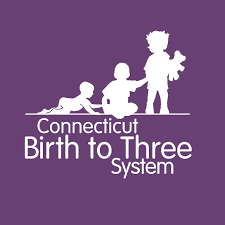
Play throughout the spring with Sparkler! We created a special lineup of springtime activities that can spark spring play and help children reach important early learning milestones!
In honor of Read Across America Week (March 2-6, 2025), Sparkler chatted with Suzannah Holsenbeck, the executive director of Read to Grow.
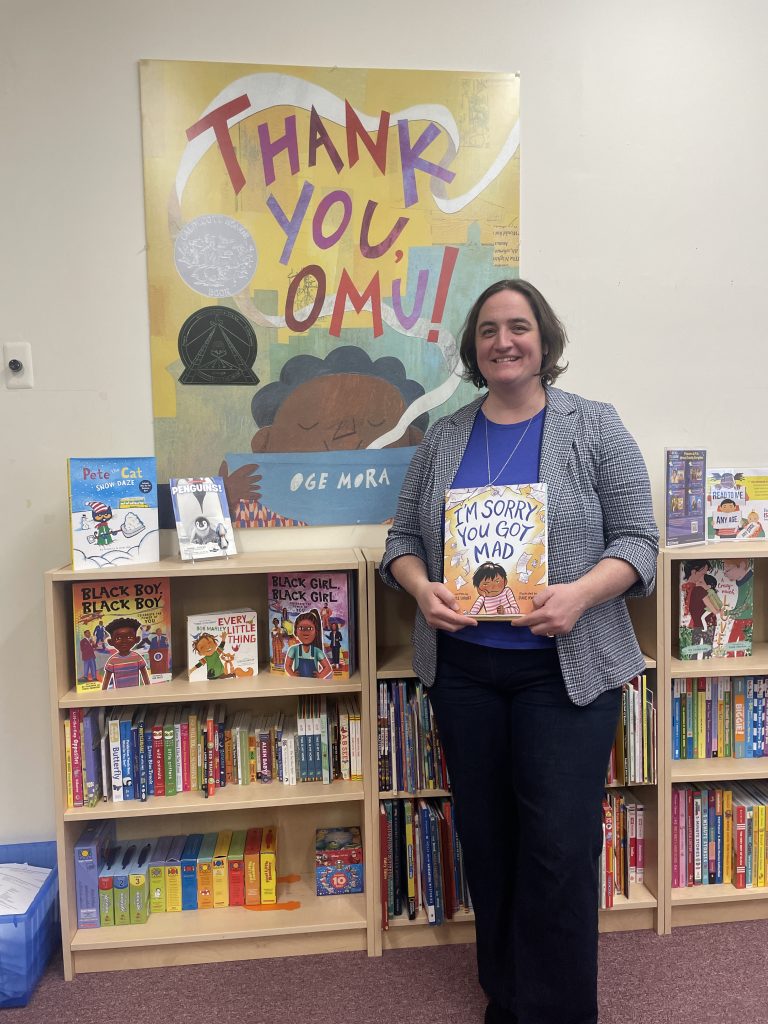
Suzannah: Read to Grow is Connecticut’s premiere early literacy non-profit. Our mission is to support language and literacy skills for children, beginning at birth, and to support families as their child’s first teacher. We distribute more than 100,000 books annually to children across Connecticut through our three main programs: Books for Babies, Books for Kids and our Bookmobile.
I was a teacher and administrator in various schools and communities before I came to Read to Grow. I was actually visited by Read to Grow volunteers in the hospital when I gave birth to my children at Yale New Haven Hospital, and received our newborn book “Welcome To The World!” several years before I became the Executive Director. So I come to this work from both a professional place — wanting to ensure that all children have the resources they need to be strong readers when they reach school — and from a very personal place — engaging with my own children. Supporting their development has truly inspired me to do this work.
We actually have a saying at Read to Grow: “Read to your belly!” It is truly never too early to read to your child. Your baby can hear you in utero starting around 24 weeks, and when they are born, your voice can be a really powerful soothing influence on them and when you read to them, they feel safe and secure. The act of reading to your baby also helps you! When we read to our children, it forces us to sit down and take a breath, hold them in our laps or have them cuddle up to us; our blood pressure goes down and the bonding we experience with our children goes up.
There’s a tremendous amount of brain development that occurs in the first three years of a child’s life. Our brains grow the most they’ll ever grow in our entire lives in those first 1,000 days, and when we read to young children, we can directly improve the quality of brain development occurring for the child. Babies as young as six months who have been read to daily show improved receptive language skills (understanding what is being said to them) and expressive language skills (indicating something specific with their voice or sign language). And then, of course, there are so many other benefits to reading as your child gets older, including exposure to tons of awesome vocabulary that goes beyond our day to day conversations.
It is a complicated question because there are so many different benefits from reading books and different books achieve different things, so I try to steer away from a moral or value judgement about a book. At a very basic level, we want to make sure that families know that just sharing a story with their child, regardless of the story, holds so much power for reasons I mentioned earlier. But when we consider the quality of illustrations in a picture book or the amount of varied words in a text or the overall message the book is delivering, then we start to see that not all books allow us to grow our child’s vocabulary or help them make observations about what they see or teach them about ways people overcome challenging experiences, or provide an opportunity for children to see themselves in books or see others different from themselves in stories. We also want to encourage families to pay attention to what their child is responding to and if they are enjoying a book, whatever the book may be, then keep reading it!
This is not a fair question to someone who runs a literacy organization! That being said, I really loved Leo Leoni’s book, “little blue and little yellow,” when I was a child.
There are so many wonderful books being published every year and we are lucky because we get to feature many of them in our Popcorn & PJs series at Read to Grow. A few recent books I’ve really enjoyed are “Eli and the Uncles” by Jehan Madhani, “The Yellow Bus,” by Loren Long, and “My Dog Just Speaks Spanish,” by Andrea Caceres.
Sometimes parents talk about how their child doesn’t want to sit still and be read to and we encourage them to read and let their child continue playing or walking around them; just because they aren’t sitting, doesn’t mean they aren’t listening. Also establishing a routine of reading books at the same time every day — maybe over meals or at bedtime — can go a long way to establishing the expectation that reading happens no matter what and over time you can work on picking books with illustrations, stories, and topics your child is really interested in. Never underestimate the power of a book that is funny or a little bit irreverent to get a child engaged.
We are so honored to partner with Sparkler for a second year to bring you read-alouds with wonderful authors and illustrators. In addition to the read-alouds, there are activities on Sparkler that align with each story and can extend the learning for the child beyond just listening to the story. We hope that this series is helpful to families and childcare providers during Read Across America week and beyond!

Learn how you can support dental health throughout early childhood. Caring for children’s teeth is important for their dental health and overall health and wellbeing — and it’s important to build healthy habits early! Parents can find these tips in their Sparkler mobile apps — and providers can find them in the Library of tips and share them with parents/caregivers from there.
Because baby teeth are the blueprint for permanent teeth, caring for them is important. As soon as baby is born, parents/caregivers can start to build healthy practices. Wipe your baby’s gums with a soft washcloth after feedings. Remember not to put babies to bed with a bottle filled with milk or any other sugary beverage.
Caring for baby teeth will protect your baby’s emerging teeth from decay, promote healthy gum development, and create early habits that encourage proper dental care as teeth grow. In order to prevent dental problems, your child should see a pediatric dentist when the first tooth appears, or no later than their first birthday.
Teething — when teeth start to grow in — is a significant milestone in a baby’s development. For most children, teething starts between 4 and 7 months. It can be challenging for both parents and babies!
For tips on how to handle this stage, visit this resource from the American Academy of Pediatrics.
Track your little one’s smile milestones with this baby teeth eruption chart from the American Dental Association.
Is your child’s thumb sucking habit sticking around? Learn when to let it be and when to step in to keep their smile on track from this American Dental Association guide.
As children grow into toddlers and beyond, they are ready to take more responsibility and become more actively involved in their own dental health. Here are some strategies to try to create a strong and healthy routine:
Creating a calm and consistent bedtime routine can help families promote healthy habits. The “Brush, Book, Bed” method — a bedtime routine of brushing teeth, followed by a story, and then bedtime — a simple yet effective framework, recommended by pediatricians. Here’s more from the American Academy of Pediatrics on how to structure children’s nighttime routines.
As children grow, make sure that they’re continuing to brush their teeth twice a day for two minutes each.
This video from the American Dental Association has handy tips for parents:
Here’s a video from Sesame Street to help your child prepare for an upcoming dental visit.
Did you know that nutrition has an impact on children’s oral health? Children need strong, healthy teeth to chew their food and speak clearly. The American Dental Association recommends eating fruits and vegetables, whole grains, low-fat dairy, and lean proteins — and avoiding fruit juices and sugar, which can contribute to tooth decay. Learn more from the ADA here.
Parents/caregivers can help children learn healthy oral health habits by modeling them.
Even starting in pregnancy, this is important. If you’re expecting or planning to be, make sure you’ve visited a dentist in the last 6 months.
Sparkler collaborated with Connecticut’s Dental Health Partnership to create a lineup of resources for families in honor of National Children’s Dental Health Month this February. If you’re a Connecticut family with HUSKY health insurance, there are free resources available to you to help keep your child’s teeth healthy. If you need help finding a dentist, making an appointment or getting to your appointment, call: 855-CT-DENTAL (855) 283-3682, M-F 8am – 5pm.

